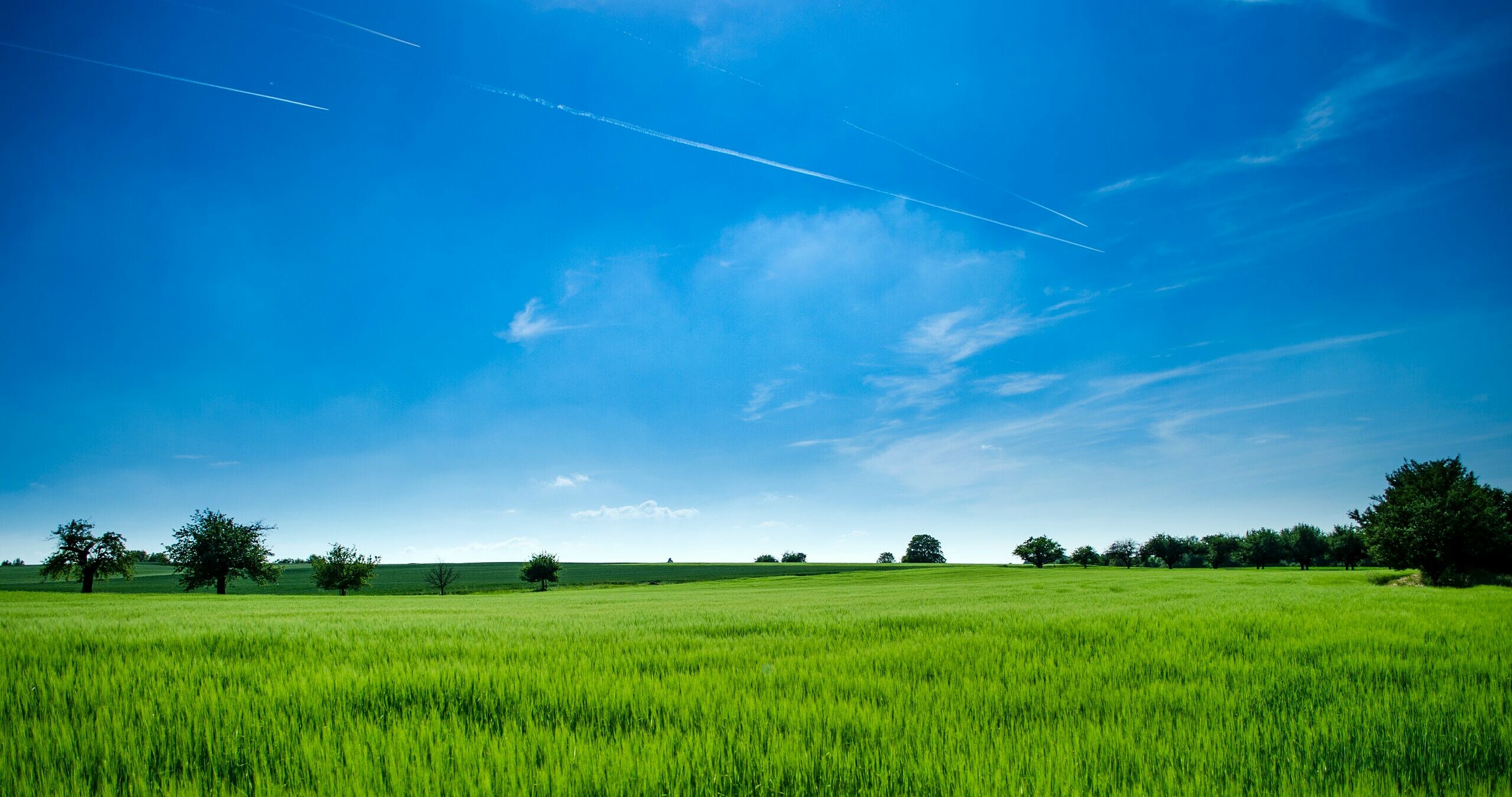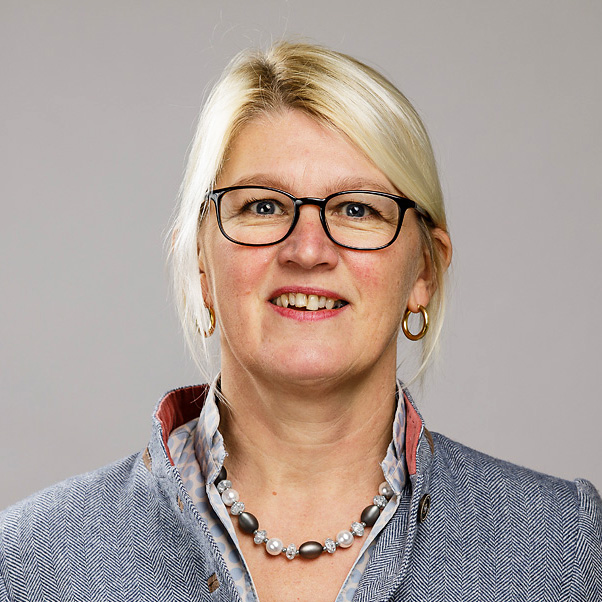Interview with Anke Kwast of Yara International
14th February 2022
This year SAI Platform turns 20! And to help us celebrate this incredible milestone we’re talking to some of the members and partners who have helped us develop and champion sustainable agriculture over these last twenty years.

Overview
“Clearly, we have now reached the tipping point for the transformation of the food system, which has been underlined by the acceleration of activities to implement regenerative practices.”

Affiliate member Yara International’s Anke Kwast, VP Climate Neutral Roadmap & Business Support sat with us recently to give an agronomist’s perspective on the important role of collaboration within the food system, regenerative agriculture, empowering farmers and the next twenty years for SAI Platform.
From an agronomist’s perspective, how do you see the future? Perhaps even the next 20-years and how do you see SAI Platform’s role there?
Anke Kwast: As I see it, there will be much more collaboration within the food system. Sharing the same targets, concerted action, standardisation and integration will be key to reaching them at scale and in a cost-effective manner. And it is here that SAI Platform will be a key enabler to move from theory to practice.
The real impact on nature and climate will come from the ground, from how our food is produced. Again, this is where SAI Platform needs to continue to lead a positive “can do” approach for farmers and enable continuous learning, trust building and value capture.
SAI Platform’s role will be key in facilitating engagement and the implementation of suitable solutions for farmers. SAI Platform can help enable local adaptation and establish pragmatic, cost-effective and reliable systems to measure, report and verify the sustainability performance of crop production.
It’s vital that over the next 20 years, we earn the trust of the various farming communities, initiative by initiative, step by step to transform to a sustainable and regenerative food production system.
The concept of regenerative agriculture is not a new methodology. However, we are now seeing an acceleration to implement regenerative practices at farm level, what has caused this change of direction? Is it for the better? And what is different compared to what we’ve be doing up until now?
Anke Kwast: Yes, it is for the better and it is not only about agriculture. Nature, climate and our food system are important to all of us. Fortunately, this is now better understood by businesses, governments, and civil society, which is critical as they need to work together to drive a system change.
Clearly, we have now reached the tipping point for the transformation of the food system, which has been underlined by the acceleration of activities to implement regenerative practices.
If we look at the concept of regenerative agriculture, it means implementing science-based practices to serve a “climate neutral and nature positive” food system. This concept needs to be translated into a framework to provide guidance for its application. This framework must then become a global standard whereby it can be anchored within existing initiatives like Science Based Targets and is verified by experts and frequently updated. By having this framework, we can address all relevant aspects, such as nature, climate, food security and prosperity; it will enable an evolution from practice-based to outcome-based metrics and be harmonised within the food system to ease scale and cost-effectiveness.
The objective of such a framework would not be to provide a detailed recipe for execution, as this requires another step with local adaptation to address the larger heterogeneity of agriculture.
The execution of regenerative farming requires action on the ground and close collaboration with farmers and SAI Platform can take a central role in execution at scale. On the farmer side we need to create awareness including – what is in it for the farmer? We need to improve and scale up knowledge transfer – so what needs to change? And finally, to identify barriers – what is required to enable this transformation?

Why is collaboration so important if we want to speed up implementation of better practices?
Anke Kwast: Even though some approaches like regenerative agriculture are going beyond protecting and aim to heal what is already degraded, a positive and collaborative attitude will prevent us from getting lost in translation. In the years to come, we need to agree on the outcome we want, share knowledge of how to get there, and earn the trust of all farmers to enable them to take the lead in the transformation of agriculture. All philosophies, initiatives and projects contributing to this development are most welcome.
What does the perfect rotation look like?
Anke Kwast: A locally adapted one, providing what is required by the market with enough biomass to support soil health, as much soil coverage as possible, including deep rooting crops to bring nutrients to the topsoil and utilise nutrients and water from deeper soil layers, crops from different species which are enabling biodiversity on farm and reducing the need for plant protection… just to name a few of them!
What can be done so that farmers are more empowered to drive change rather than reacting to the call for change?
Anke Kwast: A lot can be done, and the details have to be identified from conversations directly with farmers.
Some elements which are often mentioned are incentivising and supporting front runners and early adopters in regenerative agriculture; sharing the cost and risk of the transformation with the famers and appreciating that often knowledge and awareness is lacking – farmers are not ecologists, and we need to inform them how they can contribute. Every farm is different – so what does that mean for a specific farm and what’s in it for the farmer? Sometimes it is only a minor change, but it has a big impact. Like allowing some vegetation around the farm to complete the growing cycle, as this might be of vital importance for some beneficial insects which supports biodiversity. And lastly, we must move to a longer-term perspective and away from quick wins including when it comes to partnerships.
How do you see the role of input providers in terms of driving transformation and how is that role different to others along the value chain? Do you see that role developing as we look ahead?
Anke Kwast: As a member of SAI platform, Yara is keen to actively support both, the engagement and implementation of regenerative agriculture practices on the ground by sharing our knowledge and providing solutions.
As an input provider, Yara’s 60-years of experience on international field trials as well as a global presence on the ground with about 800 agronomists with crop nutrition expertise we’re able to provide knowledge and solutions-oriented thinking. We have multiple approaches that include a toolbox for smallholders and large-scale farmers for sustainable crop nutrition including planning- and analytical services for soil health management and precision farming technologies for dynamic nutrient management during the season.
From a research and development perspective, our role differs. We have gathered expertise on sustainable crop nutrition, product development of highly efficient fertilisers, bio stimulants, circular and organic fertilisers, tools and services for sustainable management of nutrients and water. And all of this farmer connectivity and engagement via digital tools and services such as AtFarm will continue as we look ahead.
Finally, as you know, SAI Platform is 20 years old this year, what does “People Powered Agriculture” mean to you?
Anke Kwast: Congratulations on 20 years of sustainable agriculture initiatives to all the purpose-driven people who have made this happen! Agriculture is powered by people, from farmers to factory workers, and we must all work together to transform the food system for both people and planet. SAI Platform’s experience will help us to keep the confidence and stamina required to do just that!
For more information about SAI Platform’s Regenerative Agriculture programme and how to get involved, please contact Lexi Clark.